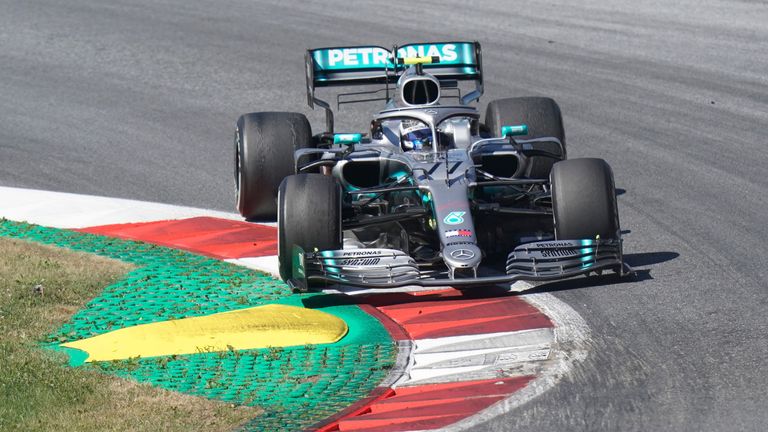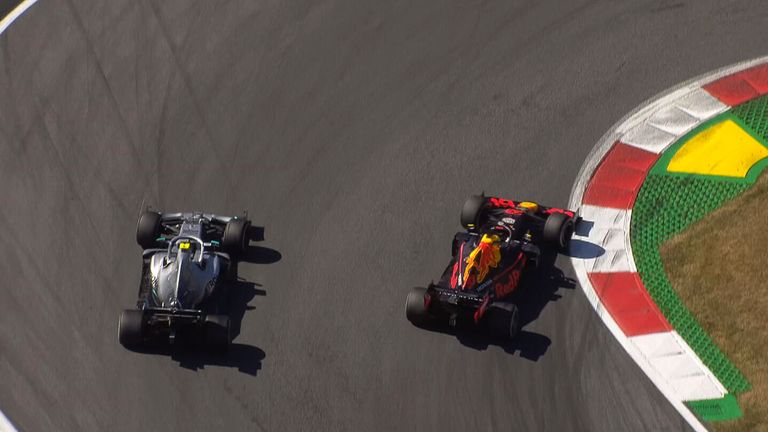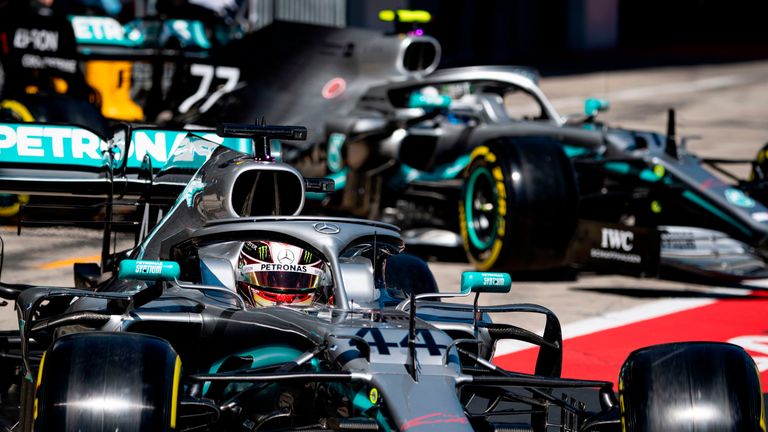Austrian GP: Mercedes explain what went wrong
World champions on how hot temperatures and high altitude in Austria combined to expose rare weakness on their 2019 car
Friday 5 July 2019 07:25, UK
Mercedes have admitted the design of their championship-leading 2019 car hurt their Austrian GP performance after experiencing their worst race of the season.
The world champions saw a 10-race winning run, which stretched back to last November's Brazilian GP, ended in conclusive style, as cooling problems in high temperatures left Valtteri Bottas and Lewis Hamilton trailing the lead Red Bull and Ferrari cars.
While the W10 has proved the class of the field in most conditions so far this year, Mercedes have explained how they have been caught out by cooling.
"Fundamentally the car doesn't have big enough radiators and that's something that we were a bit optimistic with how much we could get out of the cooling system," Andrew Shovlin said, Mercedes' trackside engineering director.
"It's underdelivered to what we hoped we could achieve, and it's meant that we are carrying this issue where in the very hot races we will be struggling to keep everything cool enough.
"Principally to keep the power unit cool enough that we don't do any damage to it. You can increase the amount of cooling you get out of the car by opening up the bodywork exits and in Austria it was 35 degrees, that actually put us at the upper end of what we could achieve just by opening the car up. So, we were on limit. When you get to that point you are really limited in your options."
Bottas and Hamilton, who finished third and fifth respectively, were instructed to 'lift and coast' during the race - braking earlier than normal and then 'coasting' into corners - to try and cool the car, while the team also ran reduced engine modes.
Shovlin says the team were already working on the issue before last weekend and are optimistic they will make improvements for future events.
"We are working on systems, we were working on them before Austria, to try and improve this problem and we should be in a better position," he added.
"But, it all really goes down to the fundamental design of the car, where in the push for very, very tight packaging, we have ended up being undercooled overall."
Although Mercedes fell short in their attempt to match McLaren's long-standing record of 11 straight races at the Red Bull Ring, the world champions' still hold commanding leads in both world championships.
"We are not sat here feeling sad and sorry for ourselves," Shovlin said. "We have got a very good car and a car that can be competitive at almost all of the circuits."
After awesome Austria, F1 2019 heads to Silverstone for the big event of the motorsport summer. Sky Sports F1 will have extensive coverage of the July 11-14 event with eight live shows featuring our expert team of pundits and presenters. Find out more here to watch all the season live.




